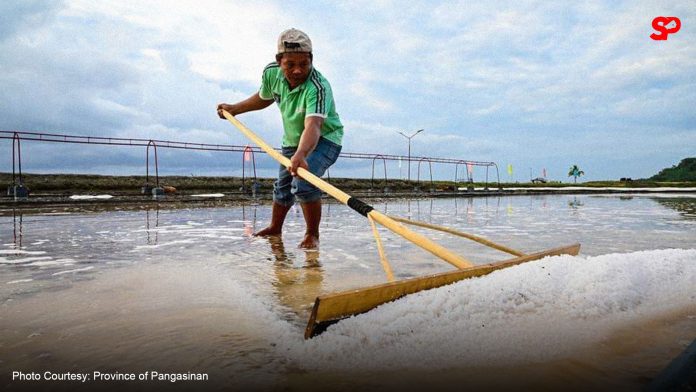By Eva Visperas
LINGAYEN, Pangasinan – The Provincial Board of Pangasinan approved a resolution on November 25, authorizing Governor Ramon Guico III to sign a memorandum of agreement (MOA) with the Philippine Coconut Authority (PCA) for the procurement of agricultural-grade salt fertilizers.
The PCA is currently implementing the Coconut Fertilization Project CY 2024 which intends, among others, to enhance the coconut productivity involving the rehabilitation of low-bearing palms through the application of agricultural grade salt fertilizers.
This partnership with the provincial government of Pangasinan aims to support the implementation of the Coconut Fertilization Project for the year 2024, marking a significant step toward improving local agricultural practices and sustaining salt production in the province.
Assistant Provincial Agriculturist Nestor Batalla shared positive news about the province’s growing salt industry, revealing that the first season of salt production, which ran from September 2023 to June 2024, ended with a bumper harvest. Over 6 million kilos of salt were produced and sold to both the PCA and other local buyers.
As the second production season began this November, Batalla expressed optimism about the prospects for the coming months, with a target of 8,000 to 10,000 metric tons, or 10 million kilos, of salt to be harvested.
“The future of salt production here in Pangasinan is very promising,” Batalla said.
He added, “We’re working hard to adapt to changing weather conditions, and our technical operations are in place to ensure that even during the rainy season, we can continue production.”
The province’s salt production period runs from November to June, with the peak months typically falling between January and March. This seasonal production is critical not only for local consumption but also for its role in various industries, including poultry, food processing, and mineral water filtration.
One of the most significant developments for local salt producers is a price increase from the PCA. Batalla revealed that the PCA will raise the price for agricultural-grade salt from P550 per 50-kilogram bag to P800, due to the high demand for salt in their fertilization program.
The PCA’s budget for salt procurement for fertilization is set at a substantial P2.4 billion for 2024, signaling strong demand for salt, particularly in coconut farming areas, Batalla added.
In addition to the PCA, Pangasinan’s salt producers are benefiting from a diverse range of buyers, including those from nearby regions, large poultry farms, and even international buyers from the United States.
Batalla also noted that many visitors, including researchers and students, are flocking to Pangasinan to learn more about the region’s salt production methods.
“We’ve had visitors not only from other provinces but even from overseas. Researchers and students, including those from top universities like UP Manila, are coming here to study salt production. Our salt farms have become a point of interest,” Batalla shared.
The Pangasinan Salt Center, under Batalla’s leadership, is also exploring the potential of developing a tourism aspect for the salt industry.
With the support of Governor Guico, a budget of P50 million has been allocated for next year’s salt production and tourism development efforts, Batalla said. This will help highlight Pangasinan’s salt industry as both an agricultural and cultural asset, attracting more tourists and creating new economic opportunities.
Batalla said coordination with local authorities is essential for visitors interested in exploring the salt farms. “We encourage visitors to coordinate with us through our Facebook page or email to ensure proper documentation and security. The salt farms are not just about production but also about preserving the heritage of Pangasinan.”
It may be recalled that under the Guico administration, the provincial government of Pangasinan took over the salt farm operations of a private company in Barangay Zaragoza in Bolinao town with an area of 473 hectares after its foreshore lease contract expired
he provincial government will be operating it, not the Pacific Farms Inc., whose foreshore lease contract had expired in 2002 and was not renewed by the Department of Environment and Natural Resources (DENR).

